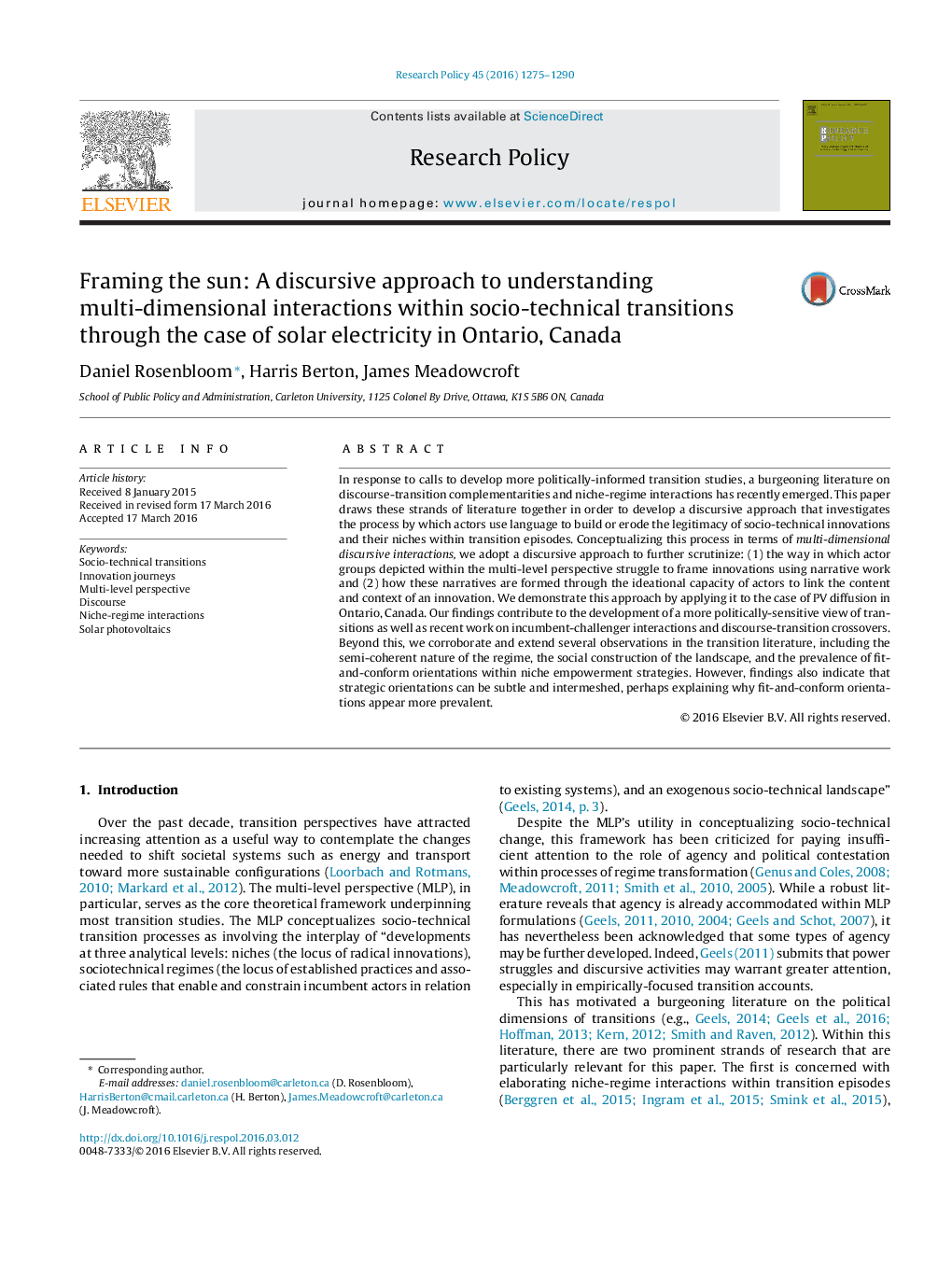| Article ID | Journal | Published Year | Pages | File Type |
|---|---|---|---|---|
| 10482921 | Research Policy | 2016 | 16 Pages |
Abstract
In response to calls to develop more politically-informed transition studies, a burgeoning literature on discourse-transition complementarities and niche-regime interactions has recently emerged. This paper draws these strands of literature together in order to develop a discursive approach that investigates the process by which actors use language to build or erode the legitimacy of socio-technical innovations and their niches within transition episodes. Conceptualizing this process in terms of multi-dimensional discursive interactions, we adopt a discursive approach to further scrutinize: (1) the way in which actor groups depicted within the multi-level perspective struggle to frame innovations using narrative work and (2) how these narratives are formed through the ideational capacity of actors to link the content and context of an innovation. We demonstrate this approach by applying it to the case of PV diffusion in Ontario, Canada. Our findings contribute to the development of a more politically-sensitive view of transitions as well as recent work on incumbent-challenger interactions and discourse-transition crossovers. Beyond this, we corroborate and extend several observations in the transition literature, including the semi-coherent nature of the regime, the social construction of the landscape, and the prevalence of fit-and-conform orientations within niche empowerment strategies. However, findings also indicate that strategic orientations can be subtle and intermeshed, perhaps explaining why fit-and-conform orientations appear more prevalent.
Related Topics
Social Sciences and Humanities
Business, Management and Accounting
Business and International Management
Authors
Daniel Rosenbloom, Harris Berton, James Meadowcroft,
